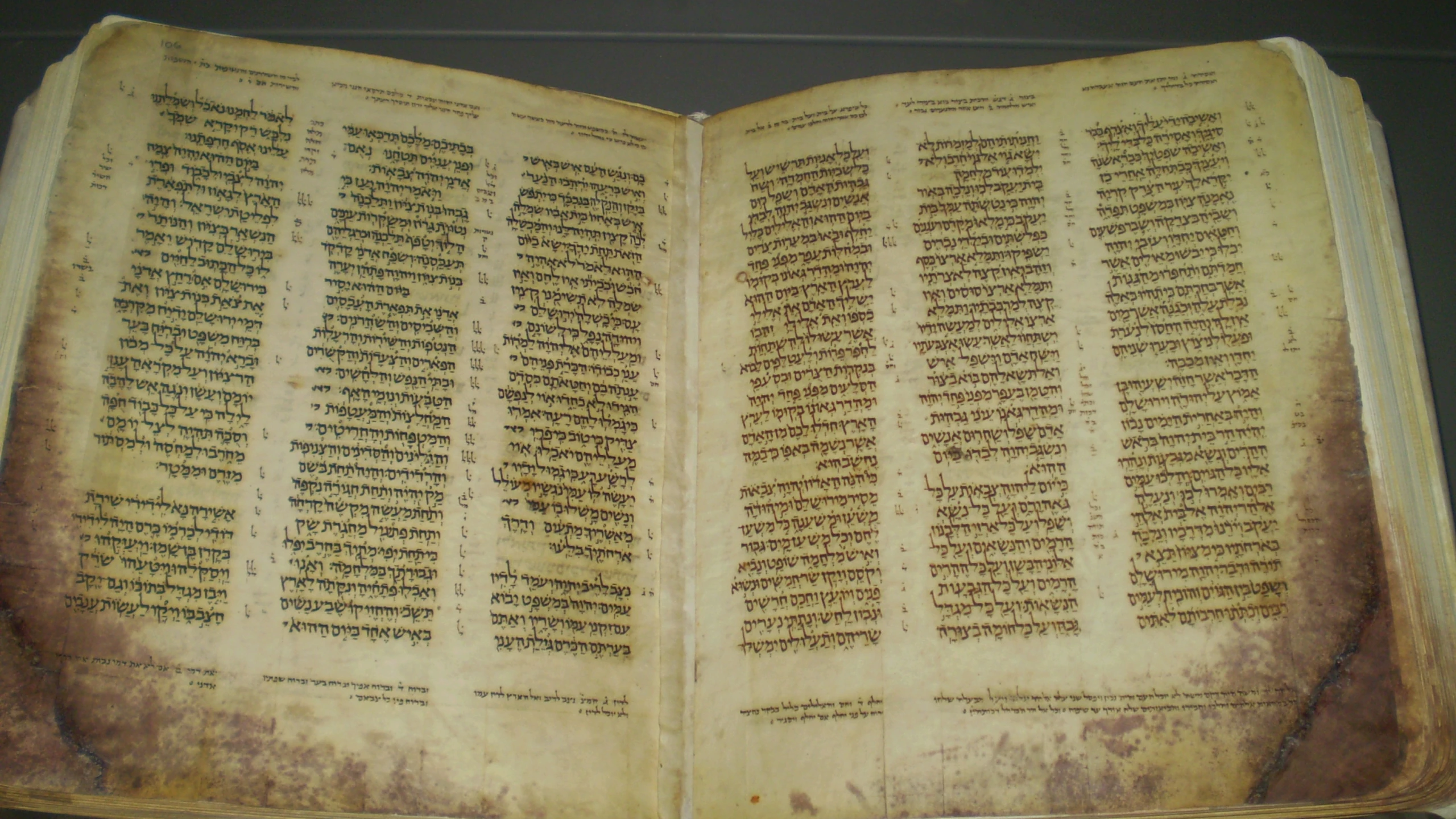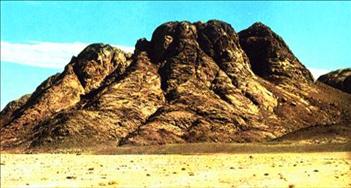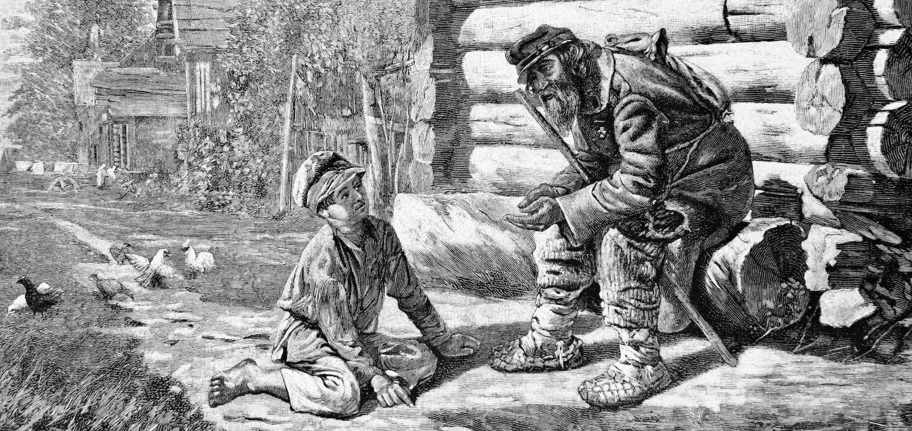Why Real Change Can Happen Only Through Torah
Transforming the Chemistry of the Universe
Shavuos/Yisro
- May 18, 2015
- |
- 29 Iyyar 5775
Rabbi YY Jacobson
2667 views- 1Comment
- Call-in
Listen to the class on the phone
Call +1 (845) 201-1933
When prompted, dial the ID number below.
2439 MP3 - Copy Embed
Class Summary:
Reb Yosef (a Talmudic sage) told his family to prepare a feast for the day of Shavous. "If not for this day, how many Yosef's are there in the market?!" Meaning that if not for the day the Torah was given, he would be just another “Joe” in the street.
The question arises, what does it have to do with the day? It is because of the Torah, not the day? Also, why from all of the Talmudic sages was it only Reb Yosef who felt this way about Torah?
These and many other questions challenge us to delve more deeply into his words. The name "Yosef" means to add. Something was added to the world as a result of the giving of the Torah. But was this just a set of laws and perspectives introduces into the world? No, said Reb Yosef. The actual chemistry of the world was changed on the day the Torah was given. The class explores the impact of Torah and Mitzvos on the human being and the cosmos.
Shavuos/Yisro
Rabbi YY Jacobson
- May 18, 2015
- |
- 29 Iyyar 5775
- |
- 2667 views
Related Classes
Please help us continue our work
Sign up to receive latest content by Rabbi YY
Join our WhatsApp Community
Join our WhatsApp Community





.webp)





Please leave your comment below!
Rabbi YY Jacobson -8 years ago
By the Grace of G-d
Rosh Chodesh Sivan, 5733
Brooklyn, N.Y.
Mr.
Brazil
Greeting and Blessing:
I was pleased to receive, first the telephone message and subsequently the personal regards through our distinguished mutual friend as well as your generous tzedakah contribution which was further enhanced by the spirit in which it was given. For, as is well known, the feelings that accompany tzedakah contributions are an essential part of the mitzvah, as is greatly emphasized by our Sages of blessed memory.
Inasmuch as "the reward of a mitzvah is the mitzvah itself," any commendation I can convey to you would be insignificant by comparison with the real reward of the mitzvah and the personal satisfaction that it gives the doer of it, in the knowledge of doing something which pleases G-d and which therefore creates a close bond with Him. However, since your participation in our vital work gives me much spiritual gratification, I will express my personal appreciation by sharing with you a timely thought, which was stimulated by your good deed, all the more so that it came in these auspicious days connected with the Festival of Mattan Torah. I will only add the prayerful wish that it be the forerunner of further and greater things, in accordance with the teaching of our Sages that "one mitzvah brings another mitzvah in its train," from which it is clear that the greater the mitzvah done, greater in both quantity and quality, the greater is the mitzvah it brings. And there is no greater mitzvah than to promote the Torah education and Torah life of Jewish children, children in the plain sense and "children" in knowledge of Torah and practice of mitzvos.
The thought I wish to share with you is one of the Chasidic doctrines relating to the content of the Festival of Mattan Torah. And while the subject borders on the mystical, it is, like all matters of Torah, basically of practical relevance to the daily life in this world of action, where the essential thing is the actual deed.
The subject concerns the following question: In light of the fact, as our Sages tell us, that the Torah had already been known and studied for many generations prior to mattan Torah at Sinai, and that, indeed, our Patriarchs Avrohom, Yitzchok and Yaakov conducted a Yeshivah where the Torah was studied, a Yesivah that was maintained even through the period of bondage in Egypt, what was the basic purpose of mattan Torah at Sinai and why was it only with the receiving of the Torah at Sinai that our people became a unique and holy nation among all the nations of the world?
Addressing himself to this question, the Alter Rebbe, the founder of Chabad, and his successors after him, gives us the following explanation:
The study of the Torah and its infinite wisdom (being derived from the Infinite), however ardently and diligently it be studied, and not merely in the abstract, but with commitment to its values and tenets, will give the student profound concepts and insights into the greatness of G-d and His creation, but the effects of such Torah study may nevertheless be confined, basically, to the spiritual realm and spiritual life of the Torah student. In other words, it did not per se transform the material aspects of the person's daily life, his eating and drinking and other mundane activities, to make them part of the realm of holiness.
Furthermore, while it is to be expected that under the influence of dedicated Torah study, a person would be moved to give expression to his deeper awareness of G-d and of the majesty of His creation and consequently, by way of example, give tzedakah to a poor man out of a deeper sense of affinity with G-d's creatures - nevertheless, such resulting deeds may still remain within the experience of the neshomo, while the body remains body, or as our Sages expressed it on a higher level: "The heavenly beings do not descend to earth and the earthly beings so not ascend to heaven."
To be sure, as long as the individual was immersed in the spiritual realm of Torah he would not, of course, do anything which would be in conflict with it and would also act positively in harmony with the Torah. This, indeed, was the case with our Patriarchs who throughout their lives were "chariots" (vehicles) for the Devine Shechinah on earth, practicing righteousness and benevolence all the time. But those who could not maintain such a state of consciousness throughout their waking hours, lived in a dichotomy of two worlds, the spiritual and the material. To the extent that one or the other was the predominant factor, the life of the individual and of human society at large, was subject to fits and starts and internal contradictions and, conceivably, the world could become a jungle, as history has shown in bitter fact.
What mattan Torah accomplished is symbolically expressed in the Torah when "G-d descended on Mount Sinai" and Moshe Rabbenu "ascended unto G-d." At that great moment of Mattan Torah and henceforth, the Jewish people have been given the power, by means of the Torah and mitzvos to do away with the separation between the spiritual and the material, through the spiritual acting upon, pervading and permeating the material, so as to essentially transform the material into the spiritual and merging them both into one harmonious whole. The Jewish people became "One people on earth," which, in the Baal Shem Tov's interpretation, means "one people in earth," i.e. bringing unity also in earthly things.
By virtue of the Torah which the Jew studies and the mitzvos which he fulfills in his daily life, his physical body and animal soul become refined and purified, so that they too are absorbed in holiness and become holy. At the same time the various material objects with which a Jew performs mitzvos (the leather of the tefillin, the wool of the tzitzis etc.) are also transformed into objects of holiness, holy things. Consequently, even such ordinary day-to-day activities as eating and drinking, etc. are transformed from simple physical functions into acts of holiness dedicated to G-d, in accordance with the rule of Torah: "Know Him in all your ways."
In summary: Mattan Torah has brought heaven down to earth and elevated earth to heaven. Hitherto, the material contradicted and inhibited the spiritual; even when it was made subservient to the latter and, moreover, made a vehicle for it, the material itself underwent no essential transformation, and when it became free from the spiritual influence, it retained its gross material character. Mattan Torah, on the other hand, brought about such a change in the material world that it could actually be transformed and changed into something essentially spiritual.
Mattan Torah has given each and everyJew the capacity, through Torah and mitzvos, to bring body and soul into such an intimate union as has not been possible before. Through the mastery of soul over body and the spiritual over the material, specifically through permeating the material with holiness and transforming its essential nature, the Jew is able not only to attain complete harmony within himself, but also promote harmony and unity in the material world around him, in coalescence with the all-embracing Unity of the One G-d, thus realizing his own destiny as well as the purpose and destiny of Creation, bringing closer the fulfillment of the prophesy, "G-d's glory shall fill all the earth."
Wishing you and yours a joyous and inspiring kabbolas ha'Torah, to receive the Torah with joy and inwardness.
With blessing,
P.S. The above point, namely, the essential change brought about by Mattan Torah, could be made clearer by analogy from the difference between a physical mixture and a chemical compound.
In physical mixture the components retain their original properties and they can be separated mechanically (e.g in solids) or physically (in solutions). Even in the latter case, as for example dissolving sugar cubes in tea, the result is not really anything new, but only "sweet tea." And while sugar and water together produce a true solution which is indivisible by such mechanical means as filtering, they can be separated physically by simply boiling of the water into steam, leaving a residue of sugar.
In chemical compounds, however, the atoms of the compound elements combine to form molecules of a new substance, whose properties are not like those of the original elements as, for example, when hydrogen and oxygen combine to produce water. Such a compound is formed through a chemical reaction, and only another chemical reaction can break it up.
Reply to this comment.Flag this comment.